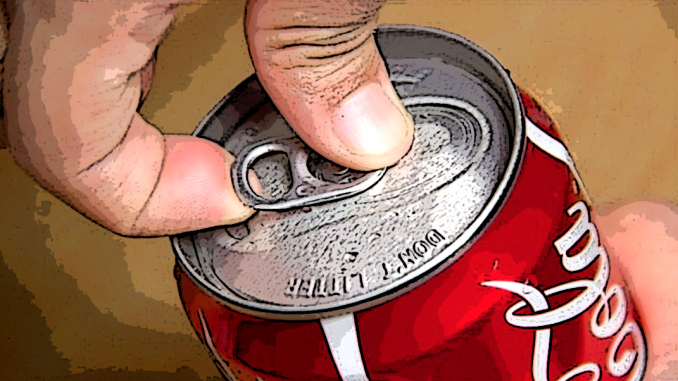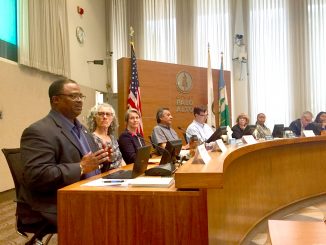
BY ALLISON LEVITSKY
Daily Post Staff Writer
Gov. Jerry Brown yesterday (June 29) signed a measure banning California cities and counties from passing taxes on sugary drinks through 2030, leading Palo Alto dentist Ken Horowitz to abandon his six-month crusade to tax soda in town.
Horowitz said he doesn’t see a way to fight Assembly Bill 1838, which will prevent new taxes from being passed on “groceries” but will allow existing taxes, like the ones in San Francisco, Oakland and Berkeley, to continue.
“It looks like I’ve got a long vacation for 12 years … I don’t know if I’ll be around in 2030,” the 75-year-old dentist told the Post. “I can’t personally fight this. I don’t know if other cities will try and fight it.”
Brown signed the Assembly Bill 1838 yesterday (June 29) in exchange for the removal of a soda company-funded ballot initiative that would have made it harder to raise local and state taxes of all kinds.
The initiative, sponsored by the California Business Roundtable, would have raised the threshold for any tax increases by local government to two-thirds.
Local government officials, terrified by the prospect of having their hands tied on all future tax increases, reluctantly backed the legislation.
“Mayors from countless cities have called to voice their alarm and to strongly support the compromise which this bill represents,” Brown wrote.
While Brown called it a compromise, some lawmakers were upset.
“This industry is aiming a nuclear weapon at government in California and saying, ‘If you don’t do what we want we are going to pull the trigger and you are not going to be able to fund basic government services,’” said Sen. Scott Wiener, a Democrat from San Francisco, which has a soda tax.
Earlier this month, Brown met with lobbyists for Coca-Cola and Pepsi for a private dinner at the governor’s mansion, according to the Sacramento Bee. Brown’s office said they didn’t discuss the soda tax ban.
Richmond, Santa Cruz and Sacramento were all considering local taxes on sugary drinks.
Palo Alto council decided to wait until 2020 to move forward with a sugar tax ballot measure, in part because the presidential election will likely attract high turnout to the polls. Now those plans will be shelved due to the passage of AB 1838.
Horowitz teaches in the dental hygiene program at Foothill College and serves on the Santa Clara County Health Advisory Commission, where he said he’ll continue to work to spread awareness of the health risks posed by sugar, especially to children.
“It really was about making people aware of how bad sugar-sweetened beverages are. That’s really the issue,” Horowitz said. “Sugar is the new tobacco. It’s responsible for a lot of diseases, including obesity and diabetes and now even Alzheimer’s has been associated with sugar.”
The Associated Press contributed to this report.



